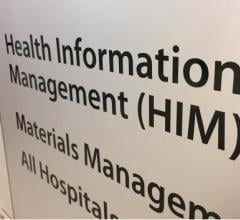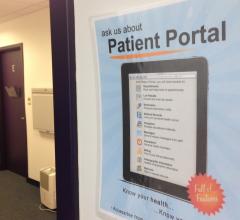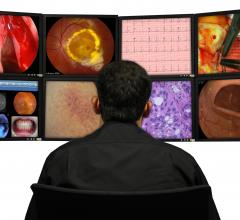
April 23, 2009 - A majority of U.S. residents believe electronic health records would improve coordination and quality of medical care, but most do not believe health IT will lead to cost savings, according to a new poll by NPR, the Kaiser Family Foundation and the Harvard School of Public Health.
The telephone survey of a nationally representative sample of 1,238 adults was conducted between March 12 and March 22 ("The Public and the Health Care Delivery System," NPR/Kaiser Family Foundation/Harvard School of Public Health, April 2009).
President Obama last week said health reform is a "pillar" of the U.S. economy's recovery, and EHRs would be a major part of health reform plans. According to the poll:
- 72 percent of U.S. residents said they believed their physicians would be better able to coordinate care if they used EHRs;
- 67 percent said the overall quality of care nationwide would improve if EHRs were used;
- 53 percent said that EHRs would reduce the risk of medical errors; and
- 58 percent said that fewer people would receive unnecessary care if medical records were computerized (NPR.org graphic, 4/22).
However, Robert Blendon, a professor and executive director of the Harvard Opinion Research Program, said, "The overwhelming majority of Americans don't think an electronic medical record will either save their family or the country money."
According to NPR.org, "more of those polled said they expect to see costs go up, not down." The poll found that more of U.S. residents expect costs to increase with the adoption of EHRs. Although 76 percent of U.S. residents said they believe it is somewhat likely that EHRs could be accessed by "an unauthorized person," most said it was important for their health care providers to use EHRs. Mollyann Brodie, a Kaiser Family Foundation vice president and director of the Foundation's Public Opinion and Survey Research program, said she believes that is because people already are familiar with computerized information and accept its risks. Brodie said, "People do their banking. They certainly do shopping these days by electronic means, and so in any of those cases you find people concerned about their privacy, but people are still doing it. They see enough of an upside for the convenience or for any other reason" (NPR.org, April 22).
The poll also found that nearly two-thirds of U.S. adults said their physicians already make efforts to hold down the costs of their medical care, 60 percent said their doctors "often" explain the reason they have prescribed a treatment and about half (48 percent) said they have discussed the scientific evidence for that treatment with their doctors ("The Public and the Health Care Delivery System," NPR/Kaiser Family Foundation/Harvard School of Public Health, April 2009). Blendon said that experts advising Congress and Obama believe "there's a lot of evidence that people receive treatments that they don't benefit from and they receive treatments or tests that are more expensive when there are other alternatives," adding, "At the moment, this doesn't resonate with the general public; that's not their experience with their own physician."
The federal economic stimulus package signed into law in February included more than $1 billion for comparative effectiveness research, as recommended by a panel of experts. The poll found that a majority of U.S. adults (55 percent) would trust a panel of experts from an independent scientific organization to make recommendations about which treatments should be covered by insurers, but fewer people (41 percent) express trust if the panel's experts are described as being "appointed by the federal government."
Brodie said that people are concerned that their physicians would not have control over their health decisions. She said, "People are really trusting of their individual doctors, and a lot of experts might say that that's, you know, misplaced trust, that the doctors don't have all the information they need," adding, "But it is the individual doctors that the public most trusts to make these decisions."
The poll also found that nearly half of insured U.S. adults said they are concerned that their benefits would be inadequate if they got sick. Among the uninsured, nearly four in 10 named cost as the main reason they don't have health coverage, while 22 percent said they do not have coverage because they are unemployed or lost their job. Brodie said, "We definitely are seeing that people are being hit hard by the cost of healthcare," added, "It's something that bothers people; it worries them. It is the key element of the public's agenda for any kind of health care reform: They want to see their own healthcare costs go down" (NPR.org, April 22).
For more information: www.kff.org/kaiserpolls/posr042209pkg.cfm


 June 14, 2024
June 14, 2024 









